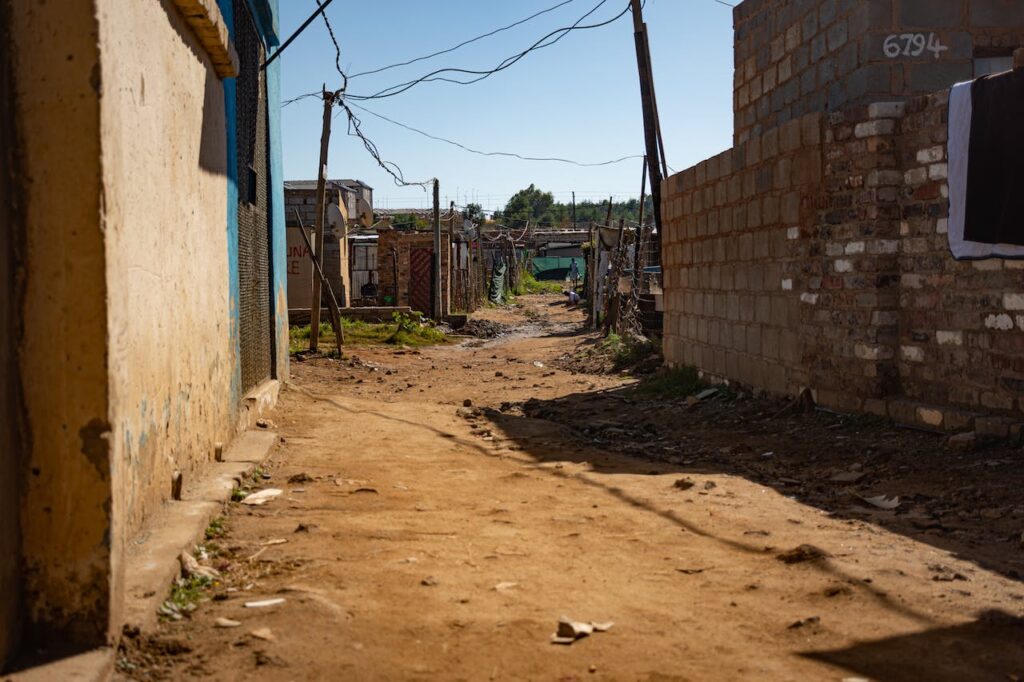
A Universal Basic Income Grant (UBI), while not a new concept, has gained prominence as a policy tool to respond to the rise in inequality, income insecurity and the rise in precarious work associated with the changing nature of work and globalization.[1] The rise in precarious work coupled with the introduction of new technologies in certain sectors both as a response to innovation and climate mitigation will result in the changing face of those who require social security in South Africa. There are many proposals to structuring a UBI, these range from minimal budget-neutral stipends to larger UBI proposals for the advancement of social and economic justice.
The impact of a UBI on the economy and its ability to reduce poverty and inequality is influenced by the size of the UBI, the level of benefits contained in the policy design and its ability to meet people’s needs.[2] The financing mechanisms of a UBI also play a determinant role to the policy’s effectiveness. Studies on UBI have found that an effective UBI policy needs to provide for a basic minimum standard of living for everyone in the country, not only those currently without a job but those who are vulnerable to job losses and income security as well as children.[3] The implicit assumption is that those currently in jobs will opt out of accessing their benefits.
To date South Africa has not implemented any policy, weather an economic or social one, that has challenged the predesigned economic power dynamics of the system in the country by addressing the root causes of the system. A UBI in South Africa would not necessarily rip up the roots of the current economic system but would absolutely change the purpose of the economic system by changing the purpose of social security assistance in the economy to play a more active role and its contributory role to demand creation in the country. Merely changing the purpose of a system can have profound effects on the system without having to change the elements and the interconnectedness of the system.
A UBIG in South Africa also can create a new economic architecture with a strong female-orientation by firstly bringing into the economy the currently excluded women and increasing the bargaining power of women by placing incomes directly into their hands. This has the effect of challenging power dynamics both at home and place of work.
The Social Policy Initiative is calling for a larger UBI to be implemented in South Africa. This is attributed to the fact that a call for a UBI in South Africa is not only to serve social justice purposes but to also act as an economic stimulus to revitalize the country’s stale GDP growth rate. The UBI stimulus needed for South Africa is estimated at a total cost of R547.8 billion over three years.[4]
The big question arises of how will South Africa pay for a UBIG?
Regressive sources of financing a UBIG such as taxes on households curtail the redistributive impact of a UBIG.[5] Financing options for a UBIG should therefore be progressive and sustainable in time. The ability of a UBI to be redistributive is the driver of its ability to reduce inequality and thus should be preserved in the financing options chosen by a country. Below are viable financing options chosen based on their ability to adequately address the affordability question:
- Using the Reserve Bank’s foreign exchange reserves: At the end of June 2022, South Africa had foreign exchange reserves amounting to R963 billion – well above the required R345 billion in line with international standards to meet three months cover.[6] The reserve bank’s foreign exchange reserve access above the three-month requirement is enough to finance the UBIG stimulus required of R547.8 billion. This policy stance is supported globally by organization such as the International Labour Organisation (ILO) and the world Bank.
- Global Climate Change Funds: To date South Africa has received a total of 415.0 million from the Green Climate Fund which has funded 9 projects and one has gone towards social security policies and programs.[7] The Adaptation Fund to date has made a budget of 10 million USD available to South Africa and begun funding two project in the country.[8] The Global Environment Facility has released over 40 million USD to fund projects in South Africa to date.
South Africa is at defining moment in history where it can relook at its macroeconomic policies to date and change them to ensure that they speak to the current realities and context of the country. With the just transition opening the window of opportunity to redefine and redesign the country’s macroeconomic policies to truly ensure no South African is indeed left behind in the pathway to reach net zero emissions by 2050. While not a silver bullet, the implementation of a UBIG can address a wide range of challenges in the country while playing a critical redistributive role.
[1] ILO. 2018. Universal Basic Income proposals in light of ILO standards: Key issues and global costing.
[2] ILO. 2018. Universal Basic Income proposals in light of ILO standards: Key issues and global costing.
[3] OECD, 2017a. Basic income as a policy option: Can it add up? (Policy Brief on the Future of Work). Paris.
[4] Gqubule, D. 2022. A Basic Income Grant for a Better Suth Africa: The Evolution of Social Assistance in South Africa. Social Policy Initiative
[5] Torry, M. (2016). An evaluation of a strictly revenue neutral citizen’s income scheme (No. EM5/16). EUROMOD Working Paper.
[6] Gqubule, D. 2022. A Basic Income Grant for a Better Suth Africa: The Evolution of Social Assistance in South Africa. Social Policy Initiative
[7] https://www.greenclimate.fund/countries/south-africa
[8] https://www.sanbi.org/biodiversity/science-into-policy-action/nie-adaptation-fund/#:~:text=The%20Adaptation%20Fund%20has%20made,District%20Municipality%20in%20KwaZulu%2DNatal.










